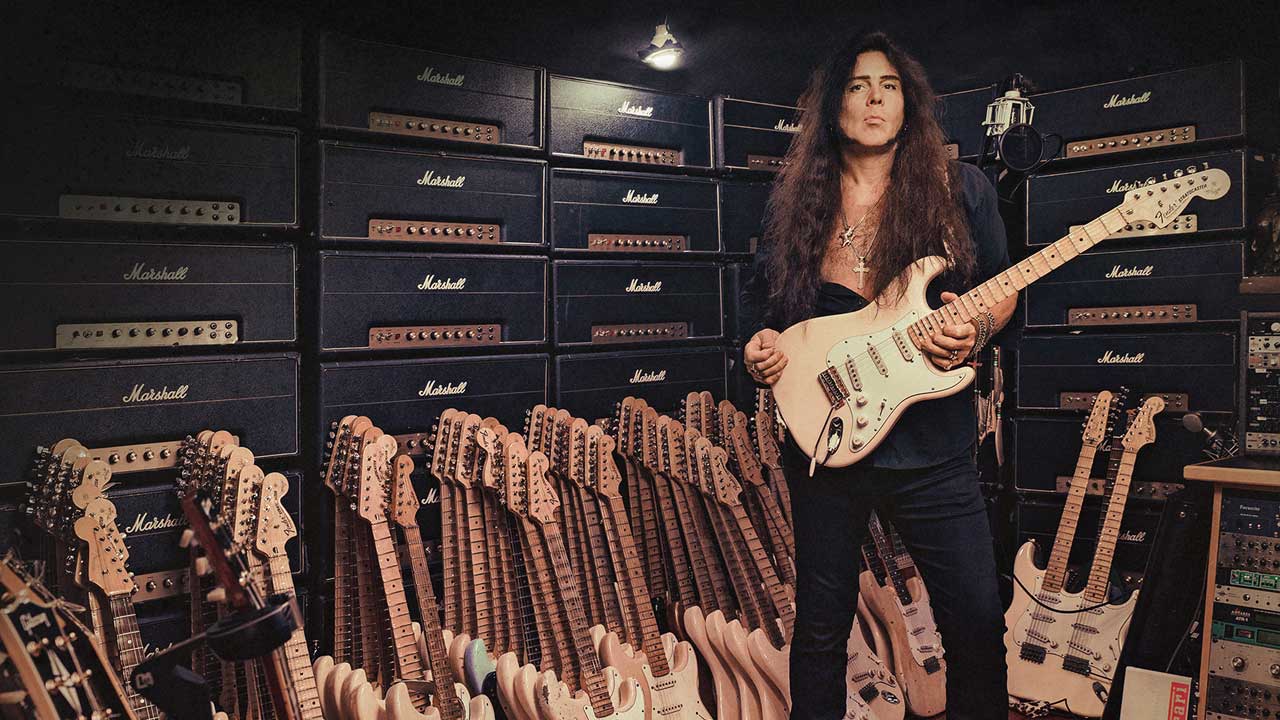Love him or hate him (and probably for more than one singer who’s worked with him since he came along in the 80s it’s the latter), you can’t ignore the one-time fastest guitar in the west.

Before coming to Europe you play a month-long co-headline US tour with Glenn Hughes. As Hughes is a bit of a hero of yours, how do you see that panning out?
I’ve known Glenn since I was eighteen years old. My first show in America was with him back in 1982. So being out on the road together will be lots of fun.
Your current tour is billed as a Greatest Hits one.
I’ve made so many solo albums, that compiling a set list is very difficult, so it changes every night. There will be a few songs from my latest album, Parabellum, and then we’ll do what some people consider the classics: Far Beyond The Sun, Black Star and You Don’t Remember, I’ll Never Forget.
Parabellum came out more than two years ago. Is a follow-up on the way?
I could make a new record right now – easy. Some of my new stuff will start creeping into the set. But when I do a new record, I want something that knocks me out completely. So I’m in no hurry.
Your new online instructional course, Maestroclass, is described as “the ultimate neoclassical guitar masterclass”. How does it work, and what does it teach?
Close-up cameras focus on my left and right hands, with tablature, and if you want then you can slow everything down. It’s for all abilities. I talk a lot; I explain why I do what I do and how I do it.
On stage you perform in front of a literal wall of amplifiers, from the floor to the ceiling.
You mean my Marshalls? Yeah! [Laughs]
The question that’s often asked about walls of amps and speakers is how many are plugged in?
There’s usually about twelve [active] heads. They all work, they’re all real.
So why do you need so many?
I love Marshalls. I’ve always loved them. I just like to have a lot of them. On the road with me now I have fifty-two heads.
For the past few years, as well as playing guitar you’ve also handled lead vocals. Your views of singers – and also their opinions of you – have been very well documented. How do you feel it is working out?
I need to explain something to you. The way I work is different to everybody else. I can wake up in the middle of the night and hear a perfectly completed song – including the production. Therefore I don’t need producers, outside writers, and I no longer need singers. When I had singers, I wrote the vocal melodies the way I heard them in my head and taught them to Graham Bonnet or whoever.
Until I came to the States I was the singer, guitar player and writer, all I needed to do was hire a bass player and drummer. Over my career there was only a small [period of time] when I used singers. It’s just easier to do it myself.
You’ve also started to squash all of the other musicians to one side of the stage.
No, no, no! There were just a couple of gigs where we did that because there was no room.
That’s how it was at the Forum in London back in 2017.
I like to be in the middle. I’m not going to be over to one side. So there’s me [in the centre], and we have the bass player and the keyboard player and drummer behind me. There were a couple of gigs in England [where they were at the side], but that’s not how we do things. No.
In June this year you turned sixty. Did it feel like a big deal?
It probably should have done, because it’s a big milestone, but it wasn’t. I’m in better shape now than I was at twenty-five years old. I don’t touch alcohol or drugs. I’m incredibly healthy and I feel amazing.
A lot of people love to hate you. How much of that do you feel is deserved, and to any degree do you feel misunderstood?
Nobody is perfect. But people really don’t understand what I’m doing. This is not a band. It hasn’t been a band since 1984. That’s strange for rock’n’roll people to comprehend, but it’s how I work. I’m a painter. I won’t do half a painting and call you up and say: “Dave, please finish it for me.” Working with others, I felt like I was subtracting something, and not adding. That’s often mistaken for egotism, but really it isn’t. Singers have a real problem with the fact that they are part of the ensemble, performing my music. They just don’t get it.
You’ve made a classical album, a collection of blues covers and a regular covers album…
[Interrupting] You forgot my book [Relentless: The Memoir, 2013]. [Laughs] Don’t read any of the others.
What remains for you in terms of boxes to tick?
Nothing specific, but each night when I go on stage I play songs that I wrote forty years ago, and I challenge myself to play them differently. I’m not a jukebox. And that’s what makes things exciting. Every time I plug in a guitar, things still feel new, and I’m very happy about that.
Yngwie Malmsteen plays four UK shows in November. Visit his website for date and ticket details.

